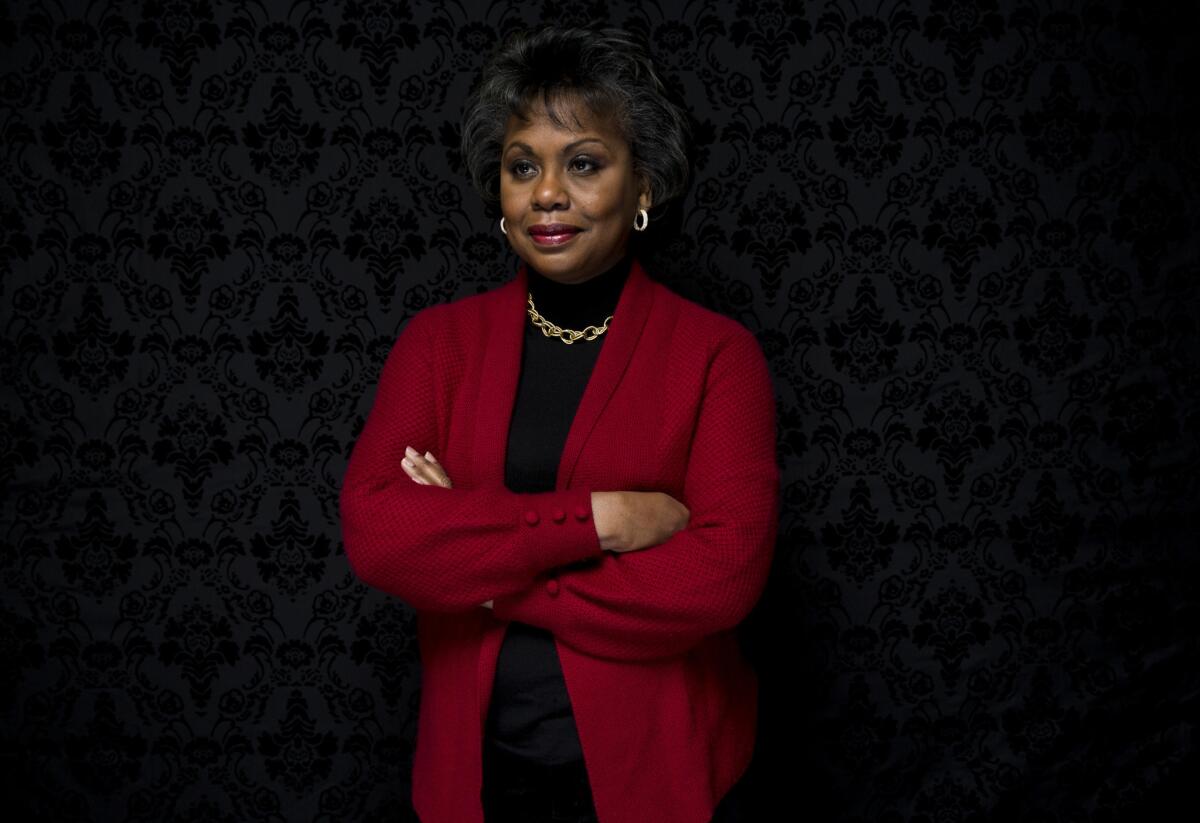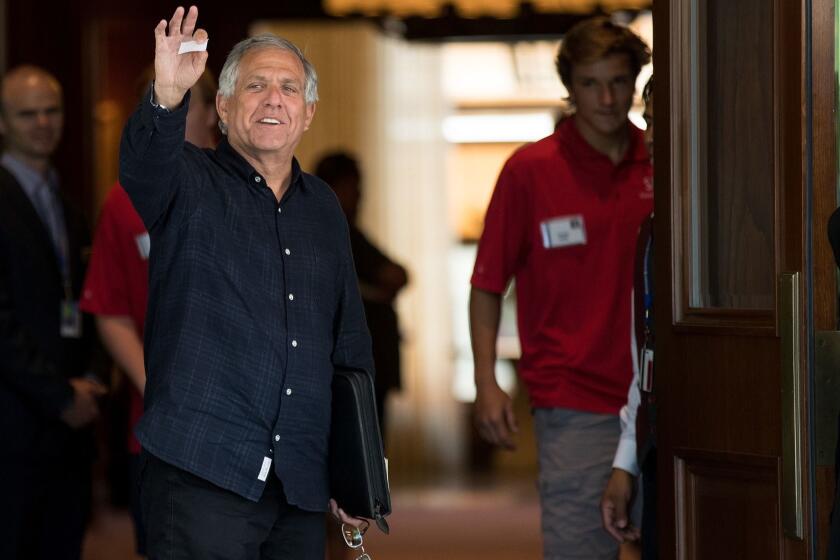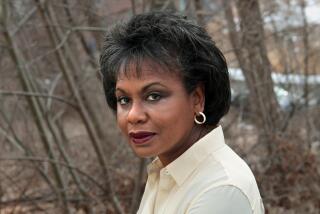Hollywood workers fear harassers go unpunished, report led by Anita Hill finds

- Share via
A commission led by law professor Anita Hill surveying nearly 10,000 entertainment industry workers found few believe perpetrators of sexual misconduct will be held accountable.
The study, based on a 110-question survey, depicts a dim view of accountability in Hollywood, with 65% believing that a powerful individual, such as a producer or director, would not be held responsible for harassing someone less powerful.
Only 28% of those who said they experienced some form of gender harassment, unwanted sexual attention or sexual coercion reported it to a supervisor, human resources or their legal department. Another key finding: 41% of victims and witnesses in harassment cases said they experienced retaliation.
“All of those things combined ... really reveals that we’ve got to do something to give people more confidence in the system,” Hill said in an interview.
A survey by the Hollywood Commission on accountability in cases of harassment in the industry.
The Hollywood Commission for Eliminating Harassment and Advancing Equality released the highlights of its first major survey as the entertainment industry continues to grapple with the fallout from 2017’s #MeToo movement and the trial of disgraced movie mogul Harvey Weinstein.
The nonprofit organization — chaired by Hill and founded by “Star Wars” producer Kathleen Kennedy and lawyer Nina Shaw — was set up to bring entertainment companies, agencies and unions together to develop and implement systems to counter harassment and abuses following a wave of misconduct allegations against powerful Hollywood producers and celebrities.
The Ethics & Compliance Initiative, a nonprofit research organization, oversaw the national survey of 9,630 entertainment industry workers, which was conducted anonymously online between November 2019 and February.
The survey included managers and workers across film, television and other entertainment industry sectors.
It found a sizable gap between men’s and women’s views on accountability for those who engage in gender harassment or other forms of sexual misconduct.
For example, 45% of men surveyed believe someone in power would be held accountable for harassing someone with less authority, versus 28% of women. Less than half (48%) of workers saw progress in addressing power abuse since the #MeToo movement started three years ago.
Hill brought the concept of sexual harassment to national consciousness in 1991 when she testified during the Supreme Court confirmation hearings of Clarence Thomas.
“This work will continue, and it may become more important than ever,” Hill said.
The commission is spearheading two initiatives for the industry. The first is creating an app to track repeat offenders that will start testing in the first quarter of next year, with up to eight industry organizations participating.
The group said that its research demonstrated that if a person acts in an abusive, aggressive way, they are likely to do so more than once.
“What we are trying to do is to make sure that there is some mechanism that is fair, that is safe, that allows people to know more about the individuals that are being hired,” Hill said.
The app will be developed by a third party technology company and will share information about workers’ rights, definitions of workplace misconduct and other resources. It will also include an anonymous chat platform and track a record of complaints of misconduct.
The app is intended to address one of the key findings from the research: More than 90% of those surveyed wanted technology for victims to create a time-stamped record, and provide help lines and other resources to assist them. Respondents also called for bystander intervention training and standardized definitions of prohibited behavior.
Leslie Moonves was a television great.
The commission found that in many cases that there is more than one person present in a workplace misconduct incident. It is piloting so-called bystander training with 450 entertainment workers to combat “the culture of silence around reporting.”
The commission itself has faced its own challenges. Former CBS Chief Executive Leslie Moonves had been a commissioner at the nonprofit, but ended up himself having to step down after accusations of sexual misconduct against him appeared in the New Yorker magazine.
The Commission is partnered with the major Hollywood studios and networks, including Amazon and Netflix, unions including SAG-AFTRA and the Teamsters Local 399, music groups and talent agencies.
More to Read
Inside the business of entertainment
The Wide Shot brings you news, analysis and insights on everything from streaming wars to production — and what it all means for the future.
You may occasionally receive promotional content from the Los Angeles Times.












